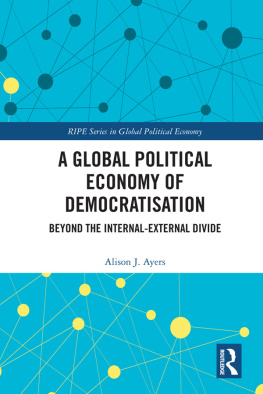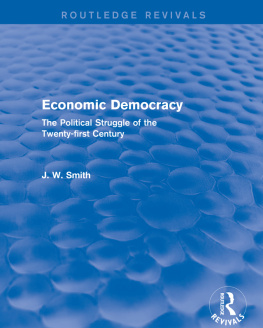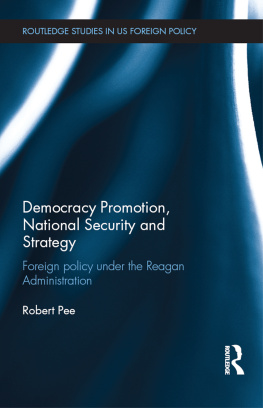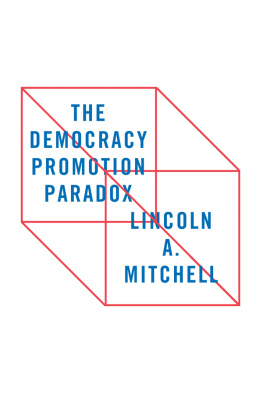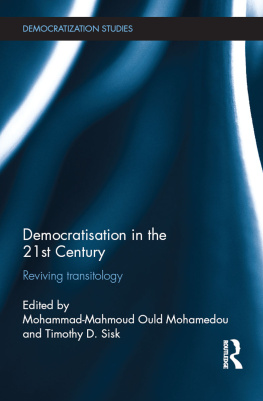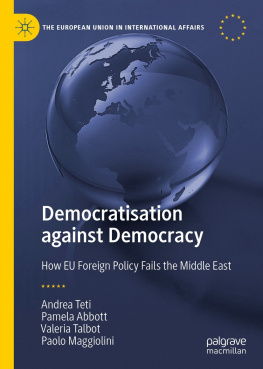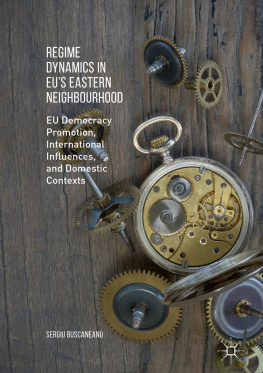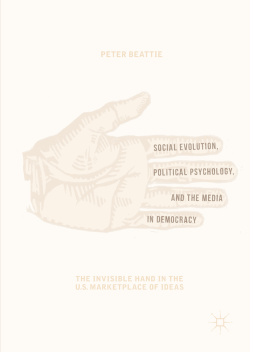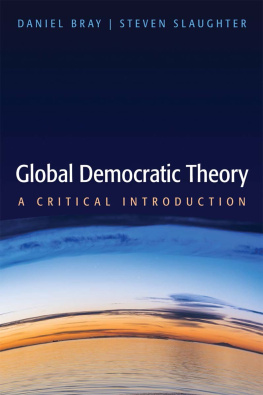A Global Political Economy of Democratisation is an exercise in reclaiming democracy and challenging orthodoxies. With passion and searing intelligence, Alison Ayers sets out to rescue democracy from its imperial pretenders. Along the way, she critically dissects neoliberal state-building projects, particularly in Africa, and reveals them to be practices of neo-colonialism. With meticulous scholarship, she makes a compelling case for retrieving African political history free from colonial biases. A Global Political Economy of Democratisation is a timely, important, and compelling book for everyone concerned about real democratic futures.
David McNally, Professor of Political Science, York University, Toronto
This book offers a scholarly, clear-sighted and utterly devastating critique of Western neoliberal democratisation, and an uncompromising indictment of how its inequities impinge upon distinct countries, classes and groups. Ayers also shows in detail why and how neoliberalism must be confronted, as the only way to overcome its deepening economic and political crises. These are essential conditions for the creation of a better form of democracy, in Africa and elsewhere. A tour de force.
Alfredo Saad Filho, Professor of Political Economy, SOAS University of London
This project offers a breath of fresh air because if, as Ayers says, democratisation and good governance interventions have directly served the neoliberal agenda, then critics of the latter who deploy these ideas need to be on guard. The different meanings of democracy promoted by grassroots activists, opportunistic politicians, the NGO industry and the imperial powers have confounded many fine scholars - but not Ayers. One reason is her thought-provoking appreciation of scale politics. This is a vital book, to be read and fought over for years to come.
Patrick Bond, Distinguished Professor of Political Economy, University of the Witwatersrand School of Governance
Alison Ayers has assembled a broad-ranging and powerful critique of the effects of neoliberalism on the global democracy project. A Global Political Economy of Democratisation identifies the constraints imposed on the full promise of the democratic ideal that are profoundly embedded in the capitalist political economy: hostile to popular agency, jealous of property rights, and imperial in its very core, democratisations appeal quickly falls away as it travels through the world, accompanied by the economic liberalism that drives Western economic interests. Ayers reinforces this argument by identifying in detail the mechanisms that deplete democracy in Ghana and Uganda. These shallow neoliberal democracies represent a kind of historical foreclosure on the more substantive and vibrant politics of each country, a fact that provokes important discussions about the transcendence of neoliberalism and the historic potentials of Africas energetic political landscapes. Readable, sweeping, and provocative, this book will become a key point of reference for students and researchers alike.
Professor Graham Harrison, University of Sheffield, UK
The West has self-identified as the arbiter of progress and the cradle of democracy. Conceptions of both progress and democracy have been inscribed into the colonial, imperial, international and global orders. This book shows that, far from forming a discourse of freedom and emancipation, democratisation has impressed and reinforced an ideological settlement of colonialism and imperialism upon the world at large. Alison Ayers provides strong evidence and argument of the international, colonial and material conditions which have formed the neo-liberal global crisis of democracy and democratisation. At each twist and turn, international theory or theories of democracy or African history or methodology or historiography and much more is subjected to scholarly criticism and elaboration, therein demonstrating the ideological complexity which is named democracy.
Julian Saurin, Free University, Brighton, and Middle East Technical University, Northern Cyprus Campus
A Global Political Economy of Democratisation
The late-twentieth century is often portrayed as an Age of Democratisation, with democracy heralded as the best of all political systems. Yet democracy has multiple meanings, values and significances. The start of the twenty-first century has witnessed a massive revival of interest in the meaning and role of democracy, not least, as democracy, understood in one highly particular sense, is increasingly recognised to be in crisis.
This book presents these deliberations in a new light by moving beyond the concept of the sovereign state as the dominant framework of enquiry and by rejecting the primacy of the state and the categorical separation of the domestic and the international. Instead, Ayers elaborates an account of democratisation through the global political economy, encompassing a trenchant critique of mainstream democracy promotion in theory and practice and opening up possibilities for different histories of democratisation autonomous of the Western (neo)liberal project.
This innovative work will prove useful to scholars and students in the fields of politics, political economy, international relations, development, African studies, history, geography and sociology.
Alison J. Ayers is Research Associate at the Centre for Global Political Economy at the University of Sussex. She previously held faculty positions at the University of Southampton and Simon Fraser University, and was Professorial Research Associate at SOAS, University of London. Former employment includes research and programme work in Africa, Latin America and the United Kingdom, with community and indigenous organisations, NGOs, the United Nations and leading research institutes. She is Editor of Gramsci, Political Economy and International Relations Theory: Modern Princes and Naked Emperors (2008/2013) and has published recent articles in Citizenship Studies, Critical Sociology, International Politics, New Political Economy, Policy and Society, Political Studies, Review of African Political Economy, Studies in Political Economy and Third World Quarterly.
Ripe Series in Global Political Economy
Series Editors:
James Brassett
University of Warwick, UK
Eleni Tsingou
Copenhagen Business School, Denmark
Susanne Soederberg
Queens University, Canada
The RIPE Series published by Routledge is an essential forum for cutting-edge scholarship in International Political Economy. The series brings together new and established scholars working in critical, cultural and constructivist political economy. Books in the RIPE Series typically combine an innovative contribution to theoretical debates with rigorous empirical analysis.
The RIPE Series seeks to cultivate:
- Field-defining theoretical advances in International Political Economy
- Novel treatments of key issue areas, both historical and contemporary, such as global finance, trade, and production
- Analyses that explore the political economic dimensions of relatively neglected topics, such as the environment, gender relations, and migration
- Accessible work that will inspire advanced undergraduates and graduate students in International Political Economy
The RIPE Series in Global Political Economy aims to address the needs of students and teachers.
Recent titles
Thinking Ecologically about the Global Political Economy
Ryan Katz-Rosene and Matt Paterson
The Global Governance of Precarity

